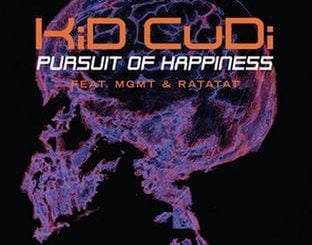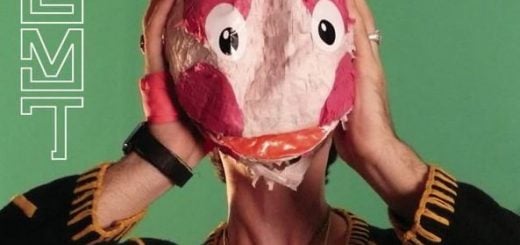James by MGMT Lyrics Meaning – The Intricate Weave of Friendship and Belonging
- Music Video
- Lyrics
-
Song Meaning
- Unveiling the Heart of ‘James’ – The Stirring Call of Friendship
- Behind the Door That’s Always Open – A Look Into Inclusive Spaces
- Eternal Echoes of ‘Who’s Laughing Now?’ – Memorable Lines Unearthed
- Tea and Sympathy: The Comforting Rituals of ‘James’
- Decoding the Hidden Meaning: ‘You’re Never Too Far Off’
Lyrics
If you heed the call
And you go outside, and wander off
And home is there
Forever you will make it
You can always say, “Who’s laughing now?”
James
If you need a friend
Come right over
You don’t even knock
And I’ll be home
The door is always open
And we both can say, “Who’s laughing now?”
Oh James
My little doll
You just go outside and you call
Oh James
Oh you’re never too far off
James
My little doll
You just go outside and you call
Oh James
No, you’re never too far off
If your fire’s out
There’s no need to shout
I’m always home
You walk on in
I’ll make you tea and breakfast
And we both can say, “Who’s laughing now?”
Oh James
Oh James
Oh James
No, you’re never too far off (James)
No, you’re never too far off
Beneath the psychedelic pop surface of MGMT’s discography lies a track that resonates with the warmth of timeless human connections. ‘James,’ a song from their self-titled 2013 album, invites listeners into an intimate space where the simplicity of its lyrics masks the song’s profound commentary on friendship and the comfort of a bond unfettered by distance or time.
At its core, ‘James’ is a melody-rich hymn to the open door policy between friends, where the hearth is ever-welcoming and laughter the antidote to life’s insistent knocks. Let’s delve into the deeper narrative MGMT weaves into this musical offering, peeling back the layers to uncover the true essence encapsulated within each stanza’s loving call.
Unveiling the Heart of ‘James’ – The Stirring Call of Friendship
At first glance, ‘James’ reads like a simple invitation—a clarion call to a friend offering refuge and companionship. Yet the repetition of ‘If you heed the call’ suggests a subtle urgency and a deeper meaning behind the lyrics. It’s about the reliability of friendship, the ever-present assurance that no matter what happens, there’s a place where one is always welcome. It portrays that profound understanding between pals which doesn’t necessitate a reason or an occasion, merely presence and shared moments as the bedrock of companionship.
MGMT crafts a sanctuary within the song itself, an aural home where James is reassured that he’s never too far from the warmth and understanding of his friends. This reassurance engulfs the listener, drawing them into a sphere of comfort, transcending mere words and enveloping them into a sentiment felt universally—everyone longs for that one friend who believes that you’re never out of reach, never too ‘far off.’
Behind the Door That’s Always Open – A Look Into Inclusive Spaces
The phrase ‘The door is always open’ is a powerful symbol of inclusivity and an unwavering welcome. When MGMT sings these words, they’re painting a picture of unspoken solidarity, where friendship transcends invitations and formalities. The open door reflects an open heart; it’s a promise that space and time are irrelevant, because the foundations of true friendship are boundless.
MGMT uses this motif to emphasize the idea that the relationships which deeply matter in life are those that come without the need for pretense or effort. James doesn’t need to knock; his arrival is expected, wanted, needed. The song posits an ideal of societal openness—a world wherein James represents every individual in need of connection and acceptance.
Eternal Echoes of ‘Who’s Laughing Now?’ – Memorable Lines Unearthed
The repeated question, ‘Who’s laughing now?’ embedded within the song’s lyrics might at first smack of vindication, but it goes much deeper. It is not about one-upmanship but rather a celebration of resilience. It’s a line that James and the protagonist can both say, as if holding up a shared victory against whatever adversities or loneliness they had to overcome.
This rhetorical query binds James and his friend—presumably the singer—in a moment of understanding that their enduring companionship has triumphed over the transient. The laughter they share isn’t at the expense of another but in the joy of mutual survival and the peace found in each other’s company. Each time the line is repeated, it reaffirms the strength found in friendship.
Tea and Sympathy: The Comforting Rituals of ‘James’
In one delicate stroke, MGMT elevates the mundane act of making tea and breakfast into a sacred rite of companionship. These simple acts of kindness, placeholders for the myriad little ways we show love for our friends, become threads in the tapestry of a long-standing relationship where small gestures have great meaning.
This verse is a testament to the understated yet powerful ways we can support one another. MGMT celebrates the ordinary acts of care that foster a sense of belonging and create a haven for those we cherish. It’s a subtle reminder of the need for human connection that extends beyond materialism into the realm of emotional altruism.
Decoding the Hidden Meaning: ‘You’re Never Too Far Off’
‘You’re never too far off,’ is the reassuring refrain that pulses at the heart of ‘James.’ It speaks to the invisible tether that links us to our true friends, no matter the physical distance. MGMT encapsulates the bond of close friendship as an ethereal connection that neither time nor space can diminish.
The hidden meaning lies in the assurance that comes with knowing you belong somewhere, with someone, infinitely. MGMT captures the essence of a friendship that acts as a lighthouse, guiding us back no matter how far we drift. This line isn’t just a bridge across isolation; it’s an affirmation that no one is ever truly lost when they are loved.








